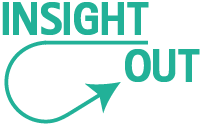I’m saying ‘do your best’ a lot at the moment. My son has a week left of GCSEs and my daughter is in the middle of her A2s. It is not something I thought about all those years ago when having a family, but the 2 year age gap certainly throws up some conundrums as far as exams go!!
Whilst encouraging my offspring to do their best I’ve noticed how often the phrase is used in all walks of life. A particularly startling version was one I heard on the radio this week from Nick Cook-Priest, Captain of HMS Bulwark, the Royal Navy ship stationed in the Mediterranean to rescue migrants in danger of drowning. When asked to reflect on the possibility that some migrants might be missed he said,
“We can only do as much as we are able…”
Whilst his statement feels right to me, it also throws up lots of questions, like how do we know what we are able to do and what our best is? How do we ever know how good we really are? How many of us take up the challenge and push the boundaries far enough to find out?
I explore this boundaries idea often when working with individuals and teams, encouraging them to stretch themselves through ‘challenge by choice’. Being offered the chance to explore their limits and set their own target on a task that they are anxious about, (whether it’s climbing a tree or presenting to a board meeting) people never fail to amaze themselves by achieving much more than they thought they could when they truly do ‘all that they are able’. When we realise that the boundaries around us are so often of our own making, then we realise that we can choose to change them.
As Tom Krause, the Finnish opera singer puts it:
If you only do what you know you can do, you never do very much!
So we can be brave, push our boundaries and step beyond the limits we place on ourselves and really ‘do our best’.
But what if our best isn’t good enough? Winston Churchill said:
Sometimes doing your best is not good enough. Sometimes you must do what is required
If we are helicopter pilots, brain surgeons or the safety supervisors on a roller coaster (what a horrible week that has been), then maybe we can’t just ‘do our best’ because we also have to do what is required?
And is it helpful to always do your best? I worked recently with a very capable and successful individual who felt compelled to do everything perfectly. This driver worked well for him and contributed to his success but it came at a price. He realised that striving for perfection in his work life was having a cost on his home life. He wanted to learn how to aim for ‘good enough’ instead. And for many of us much of what we do doesn’t require perfection, or even our best, it just needs to be done ‘OK’.
So where does this all get us? Can we only do our best, or can we do more than that if we push our boundaries? Can we strive for perfection, but is being good enough a better alternative? Can we only do as much as we are able, but how do we know what we are really able to do? And what will help us to be happy: doing it perfectly, doing our best or doing it OK?
I think my answer to all these questions is yes! I know I have boundaries that I choose not to challenge, and some that I constantly push. There are things I could do better that I choose not to spend the time on and times when I choose to believe that only being perfect will be good enough. I know that sometimes I am delighted because I ‘scraped through’ and sometimes I choose to fret and worry over the one small thing I got wrong.
So is that the key? Is it all down to choice? Perhaps the thing that holds this random collection of thoughts together is the reality that we choose how good we are, the targets we set ourselves, the boundaries we live within. We choose when we want to be our best and when we can be good enough. We choose what we are able to do and the standard to which we do it. And most importantly of all, we choose how we feel about ourselves along the way, whether we are happy with our efforts or not.
And for my children. Of course I hope that they are happy with their grades. But more than that I hope they feel they chose well, that they pushed their boundaries and did their best: that they did as much as they were able to do now, and learnt more about what they will be able to do in the future:
Do the best you can until you know better. Then when you know better, do better
Maya Angelou
Maybe knowing better is knowing that we have a choice about ‘doing our best’?
How do you know how good you could be? How could you find out? How will you choose when to be that good?
I love hearing your thoughts on the Choose You project and your examples of Choose You moments, so do please continue to share them with me, (you can email me at jenny@insight-out.co.uk)
Thank you for reading this blog. I look forward to sharing more thoughts with you in a couple of weeks.
Jenny

